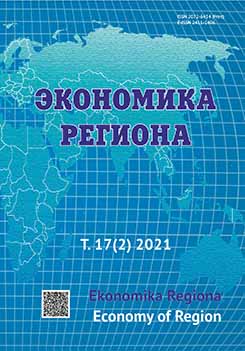Indian Students at a Russian Regional University:
Socio-economic Impact of Short-term Educational Programmes
Indian Students at a Russian Regional University:
Socio-economic Impact of Short-term Educational Programmes
Author(s): Natalia Antonova, Duru Arun Kumar, Galina Popova, Yana VysotskayaSubject(s): Economy
Published by: Институт экономики Уральского отделения Российской академии наук
Keywords: internationalisation; university; academic mobility; short-term programs; Indian students
Summary/Abstract: Universities are increasingly seen as drivers of regional economic development. In this research, we undertook an analysis of the short-term academic mobility of university students as a factor in the internationalisation of higher education. The number of foreign students (International Student Ratio) attracted from across the world is an important metric in all global university rankings. As a result, universities aiming to improve their positions in the global educational market are actively implementing programmes to attract foreign students. Short-term educational programmes of academic mobility are characterised by a high level of flexibility in terms of management, thus being capable of meeting a wide range of needs and interests of potential students. In July 2019, we conducted a survey among Indian students (n = 65) participating in short-term international academic mobility programmes at the Ural Federal University (Ekaterinburg, Russia). The main goal of the empirical research was to investigate students’ motivational structure of participation in academic mobility and the role of such programmes in the implementation of students’ life plans. In addition, barriers to the effective implementation of short-term educational programmes at universities were revealed. According to the research results, Russian education is a status characteristic for Indian students, which allows them to gain important socio-cultural and communicative competencies, as well as to build professional trajectories in a foreign country. The respondents expressed willingness to continue their education in Russia as part of Master’s degree educational programmes. Among the main barriers and challenges, the respondents mentioned poor knowledge of the Russian language and financial difficulties.
Journal: Экономика региона
- Issue Year: 17/2021
- Issue No: 2
- Page Range: 460-472
- Page Count: 13
- Language: English

